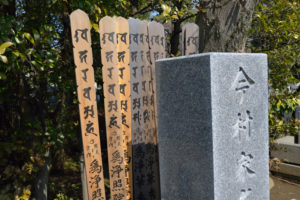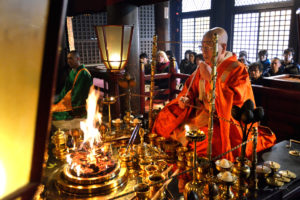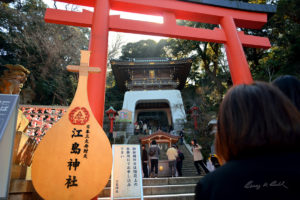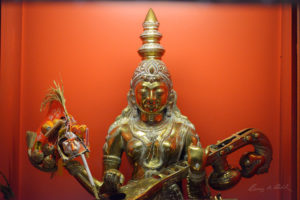Hindu deities and Indian culture is very popular and accepted in Japan
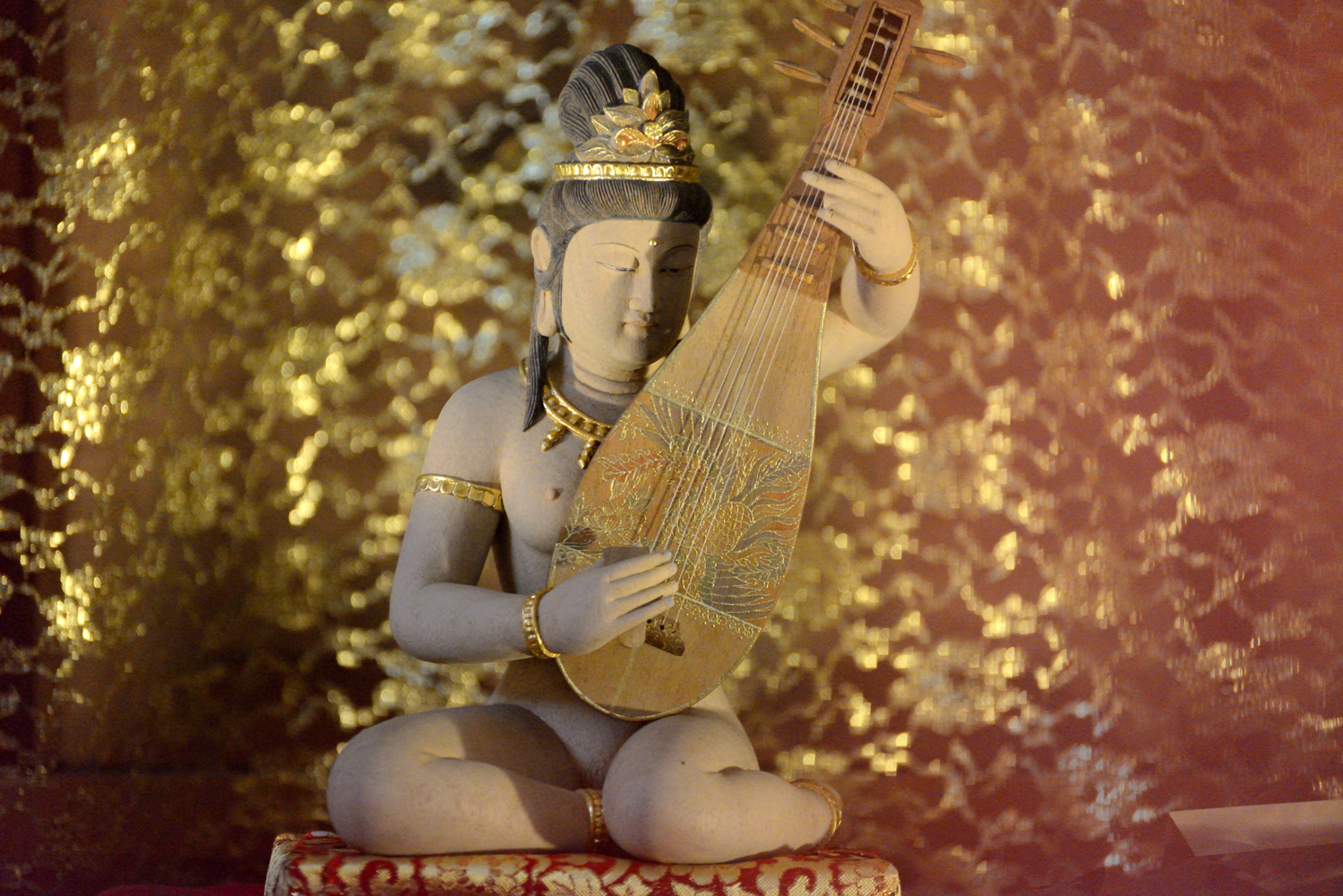
Saraswati Yoshiwara Jinja, Tokyo. Photo Credit: Benoy K Behl
Benoy K Behl
Most people are not aware that at least a score of Hindu deities are very actively worshiped in Japan. In fact, there are hundreds of shrines to Saraswati alone. There are innumerable representations of Lakshmi, Indra, Brahma, Ganesha, Garuda and other deities. In fact, deities we have practically forgotten in India, such as Vayu and Varuna are still worshiped in Japan.
In many ways, I find that Japan has preserved ancient Indian traditions, even when they may have changed here in India. As an instance, in Japan, Saraswati is depicted and venerated not only with the Veena, but also remembered for her association with water. (One may recall that Saraswati is originally the personification of the river by that name). Therefore, she is also worshipped in pools of water in Japan.
Sanskrit
The 6th century Siddham script is preserved in Japan, though we do not use it in India. Beejaksharas of Sanskrit in this script are regarded as holy and are given great importance. Each deity has a ‘Beejakshara’ and these are venerated by the people, even though most of them cannot read it.
Homa
Many links in the development of Vajrayana Buddhism can be found in a study of Japanese Buddhism. Today’s Himalayan Buddhism is of a later development and has lost the typical ‘havan’ or ‘homa’. I was delighted to find and to record the continuance of the tradition of ‘homa’ in some of the most important Japanese Buddhist sects, who call it ‘goma’. Sanskrit sutras are also chanted on the occasion and it is much like the ‘havan’ which we are all familiar with.
Language
Very many words in the Japanese language are from Sanskrit. Sanskrit was also the basis for the formation of the Japanese alphabet ‘Kana’. In the supermarkets, a major brand of milk products is called ‘Sujata’. The company personnel are taught the story of Sujata who gave sweet rice milk to the Buddha, with which he broke his period of austerity, before he gained Enlightenment.
Philosophy
There are deep meanings in Japanese practices which take us back to early developments of philosophy in India. In many ways, the philosophic understanding is most well preserved in Japan. Japan has not had the breakdown of cultural norms which India suffered, when a colonial education system was created. Therefore, most Indians learnt about our own culture from the Western point of view. The dominant and admired language was English, which it remains till today. Obviously, all our books and education in schools and universities are rooted in the English vision.
Japan and India
Our relationship with Japan is far closer than Indians seem to be aware of. It is time to understand this and to build upon it. It is time, in fact, for the world to learn from the peaceful and civilized outlook which is rooted in ancient India and in the culture of countries like Japan. It is about time to stop destroying ourselves and the world around us, through unthinking and uncaring commercialism.
People of “modern” outlook need not be concerned that looking to ancient culture will lead to less economic development. In fact, culture provides the discipline, meaning and concentration in life, which makes us truly successful in all that you do. What is more, it also leads to good health and happiness.
Japan is the one country where Buddhism is flourishing in all its facets. Here, technology and transcendence are living together. The deep-rooted spirit of Buddha’s teachings energies the Japanese people.
Buddhist temples are numerous and vast numbers of people visit them every day. Besides the Buddha, so many ancient Indian deities and practices are preserved in these temples. An Indian feels quite at home in Japan.
Japan Foundation Fellowship
The research and most of the photographs seen in this exhibition were taken by me with the support of a Japan Foundation Fellowship, in Spring 2015. I am deeply grateful for this valuable support provided.
Benoy K Behl is culture historian and photographer


